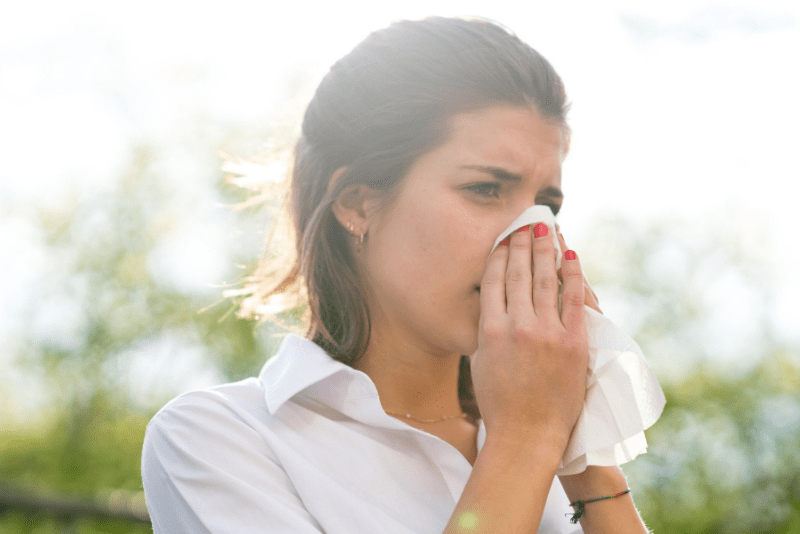With 50 million Americans suffering from allergies, it’s not surprising that there are two million missed school days due to pollen allergies. Dr. Thomas Harper states “allergies are often thought of as only nasal or eye problems, but it really can be a global issue. Allergies can affect your quality of life, quality of work, your basic day-to-day functioning.” Several studies have been done all over the world comparing pollen counts and student test scores. These studies indicate that when allergy suffers attended school they perform worse than their peers who do not suffer from allergies.
Allergies is one of the most common medical conditions affecting children in the US with common symptoms including sneezing, itching, and runny nose. These symptoms can affect sleep, which in turn can cause exhaustion and ultimately result in poor function.
Many people with hayfever also suffer from asthma. The same substances that cause allergies (pollen, dust, pet dander, mold) often cause asthma symptoms. Uncontrolled asthma is often attributed to uncontrolled allergies as one affects the other. Poorly controlled asthma will impair function, resulting in missed school days and missed work for parents. Medications to combat allergic symptoms can often result in sleepiness as a side effect. It’s best to try several medications out until you find the right fit.
There is also cause to believe that even when you think you have eliminated your child’s allergies at home, they are potentially breathing in offending substances at school. Many allergy and asthma triggers are found within school walls, like dust, pet dander, and mold.
Researchers in Norway found that as pollen counts increase, students test scores decrease. Using combined data from 70,000 high school exit exams and pollen count numbers, there was a correlation between increased pollen and a drop in one-tenth a point in exam scores. This study also claims that the effects of hayfever and high pollen counts carries on into adulthood, stating that allergy sufferers will be at a disadvantage when competing for jobs and university when compared to their non-allergic peers. The earlier you identify allergies in your children the quicker you can improve their quality of life, reduce missed school days and subsequently reduce your time away from work to care for your sick child.
Britain researchers also found similar correlations between high pollen counts and low test scores in young adults. They reported that those who suffered from allergies or were taking allergy medication scored 40-70% lower than the practice test the students had taken the winter prior. A US study showed that when pollen counts doubled, third graders saw a 1-2% drop in English and math testing when compared to their counterparts.
Charleston Allergy & Asthma is a certified pollen counting station. We count the pollen locally for the Lowcountry and provide that to the public on our website. Our Pollen meter spins in the air one minute of every ten minutes for 24 hours. Pollen sticks to the slide and the slide is then placed under a microscope where we can read and count specific pollens. Knowing the local pollen count allows “people to plan accordingly to take their meds and enjoy the outdoors, as it informs our community if pollen is elevated,” says Dr. Andrew Davidson. He also noted that having these counts provides “for better diagnoses as we know exactly what is in our air and atmosphere.”
Interested in finding out what you are allergic to? Make an appointment today.




